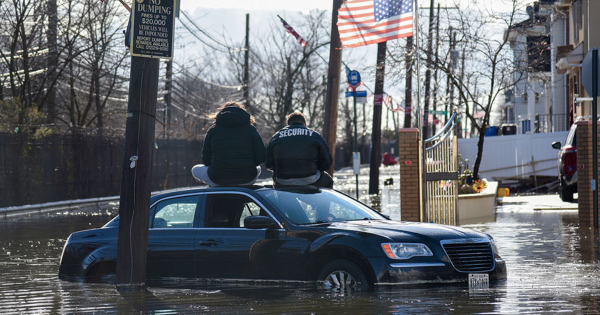A recap of articles discussing climate migration, which is already underway in the USA
https://magazine.columbia.edu/article/americas-great-climate-migration-has-begun-heres-what-you-need-know
#ClimateCrisis #ClimateChange #CliamteMigration #ClimateAdaptation
https://magazine.columbia.edu/article/americas-great-climate-migration-has-begun-heres-what-you-need-know
#ClimateCrisis #ClimateChange #CliamteMigration #ClimateAdaptation

America’s Great Climate Migration Has Begun. Here’s What You Need to Know.
Columbia researchers are developing innovative ways to protect communities most vulnerable to floods and other disasters.Columbia Magazine
Dieser Beitrag wurde bearbeitet. (4 Monate her)

fluids_guru •
https://www.theage.com.au/environment/climate-change/they-ain-t-seen-nothing-yet-un-boss-names-climate-change-impacts-coming-to-australia-20240225-p5f7n5.html
‘They ain’t seen nothing yet’: UN boss names climate change impacts coming to Australia
Nick O'Malley (The Age)fluids_guru •
https://www.theguardian.com/australia-news/2023/nov/10/australia-to-offer-residency-to-tuvalu-residents-displaced-by-climate-change
fluids_guru •
During the 2022 Australasian Fire and Advisory Council conference (co-hosted with the Australian Institute for Disaster Resilience), Robert Glasser delivered a keynote summarising the implications of Global Warming in SE Asia.
Here is Robert's bio: https://iceds.anu.edu.au/people/visiting-and-honorary-members/dr-robert-glasser
Dr Robert Glasser
ANU Institute for Climate, Energy & Disaster Solutionsfluids_guru •
The implications for Northern Australia are immense - both from an immigration perspective and from the point of view of human habitability. Parts of Northern Australia will exceed the limits of human physiology in future wet seasons.
In polite society, this has never been discussed. But now that Robert can present these arguments at a national conference, I guess the cat is now out of the bag.
Here were his slides.
Robert began by reminding us that 1.5 degrees is already locked in - and the impacts of fractions of degrees beyond that will be highly non-linear
Hugs4friends ♾🇺🇦 🇵🇸😷 hat dies geteilt